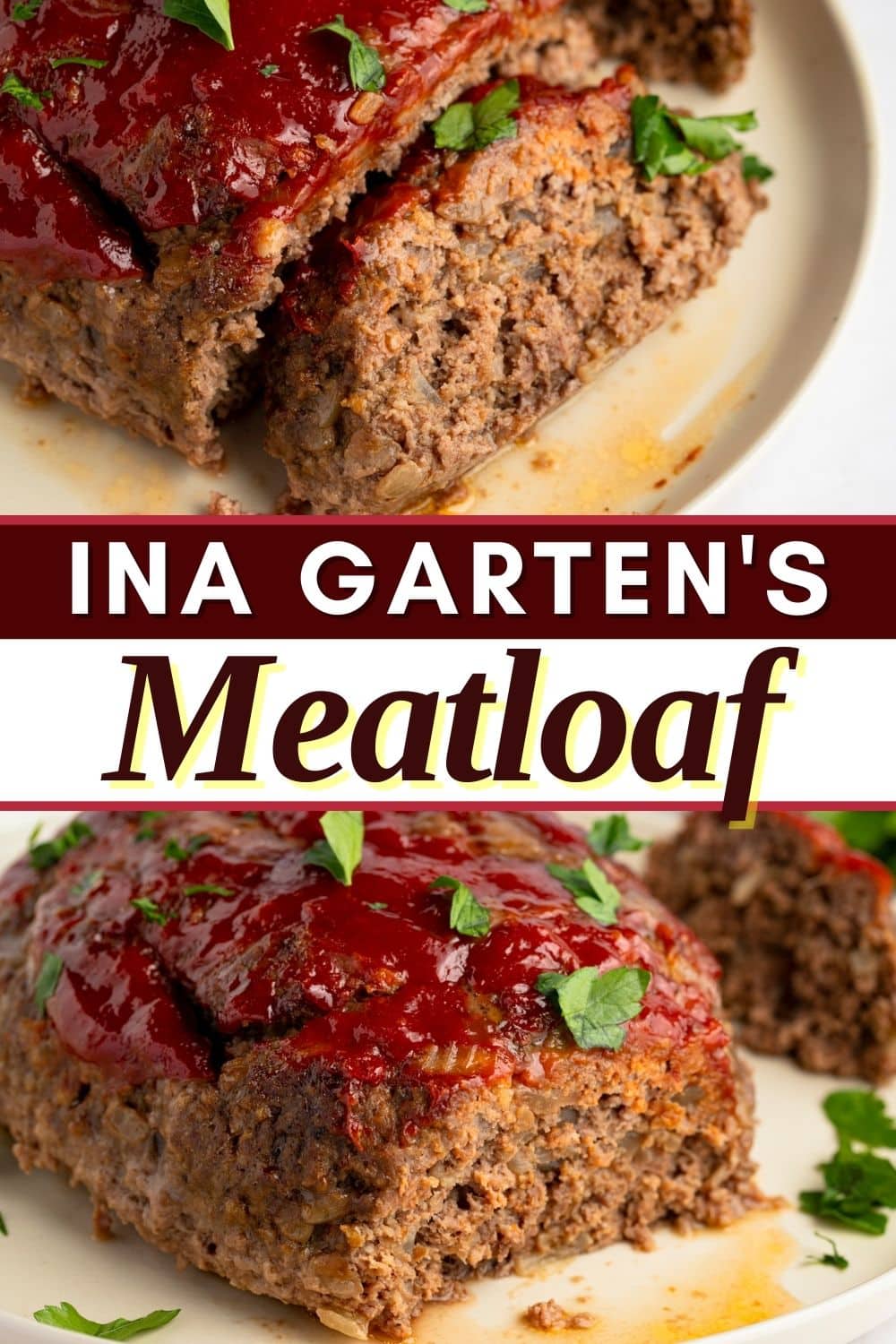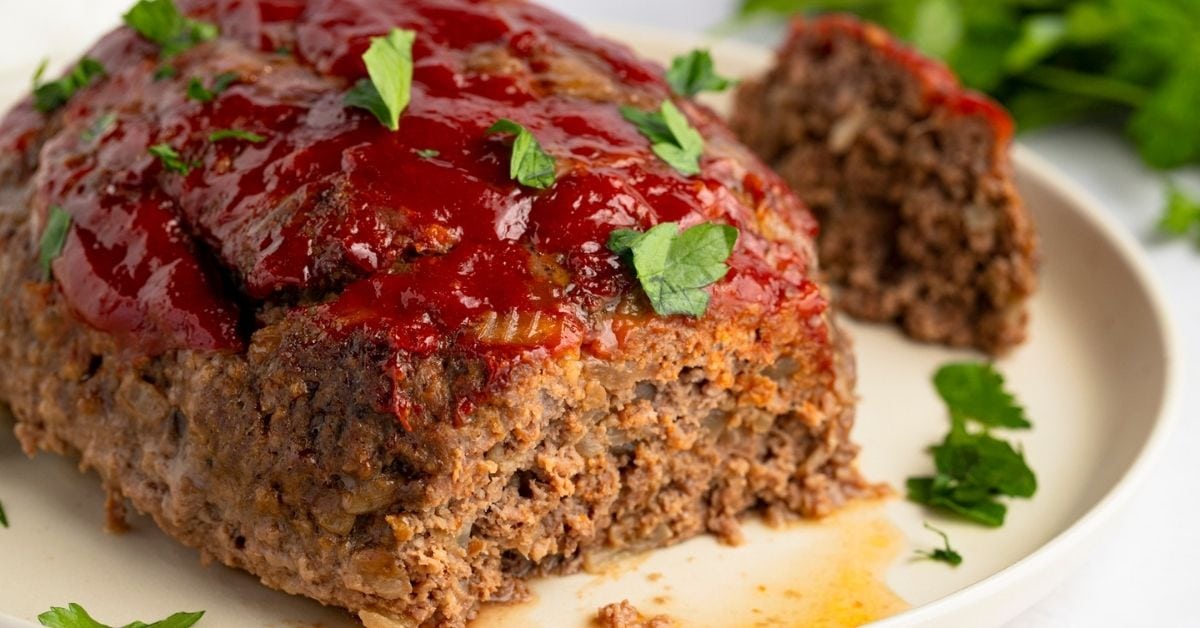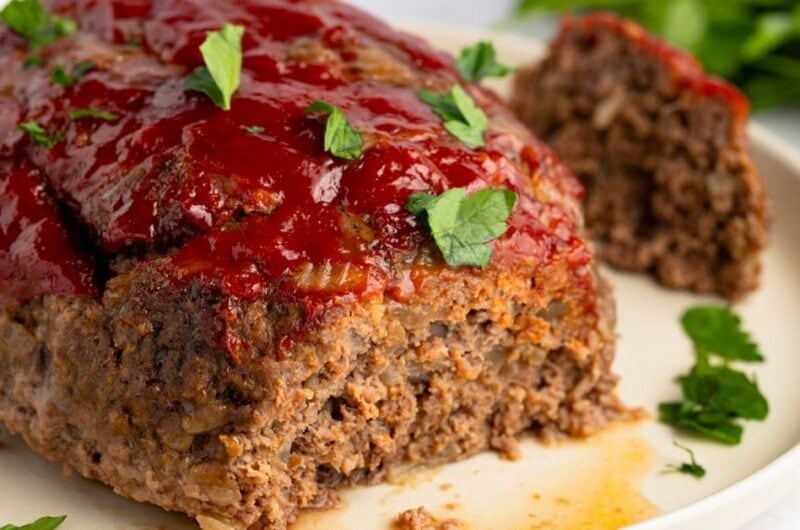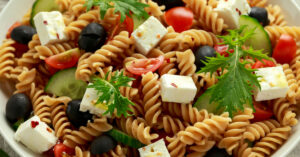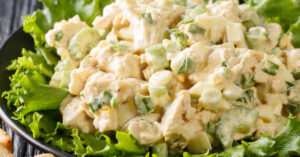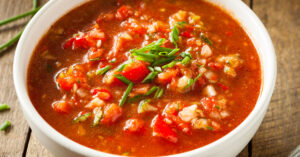If you love meatloaf but don’t want to spend hours in the kitchen, then you have to try Ina Garten’s meatloaf.
The Barefoot Contessa never disappoints!
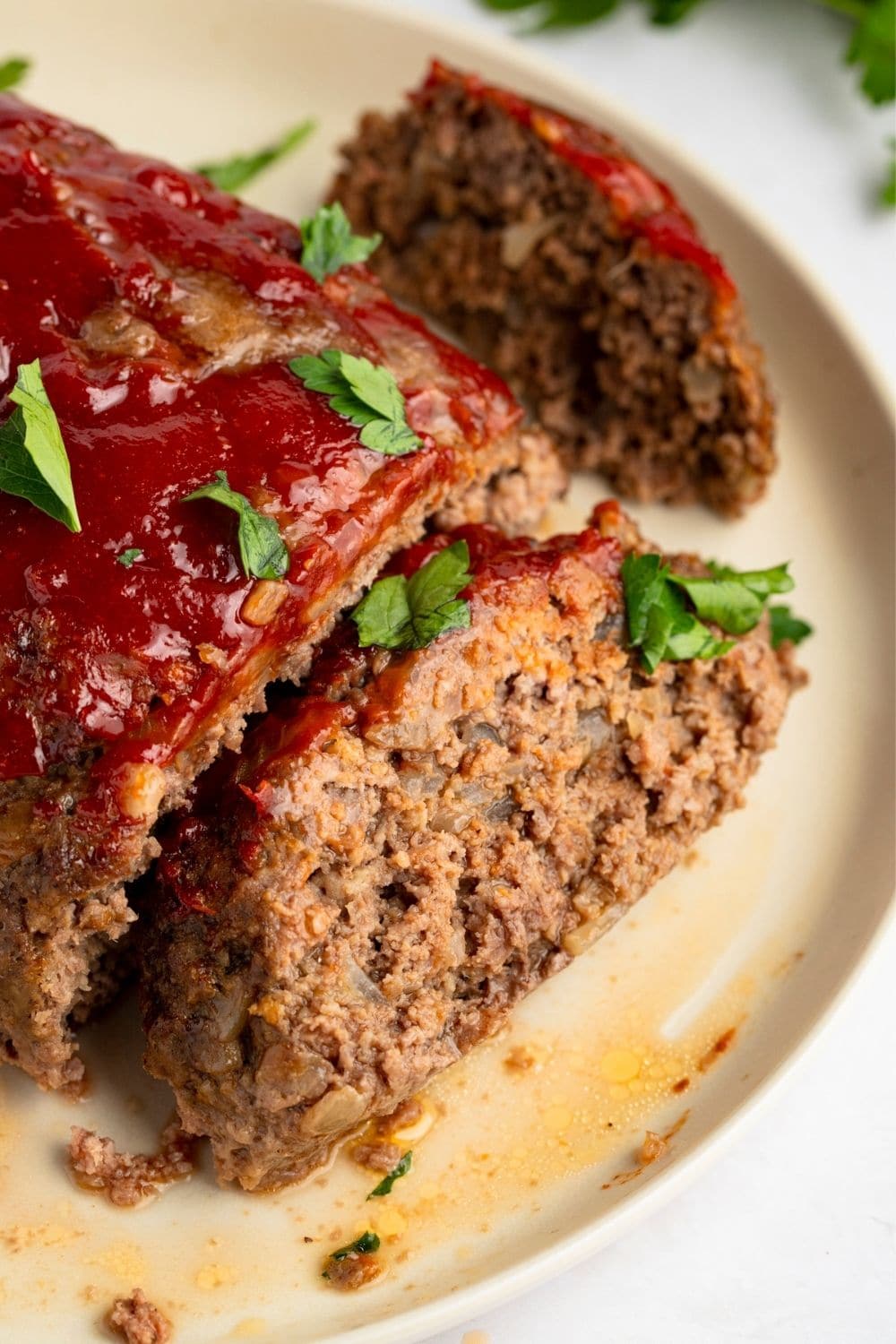
This meatloaf is incredibly moist and full of flavor. Stick to this recipe, and you can kiss tough, dry, or greasy meatloaf goodbye.
You’d think it requires some expertise, but this recipe is easy and foolproof. Even amateur home cooks can pull this one off, no problem.
Time to put on your aprons, folks. Let’s begin.
How Do You Make a Juicy Meatloaf?
Preheat the oven to 325 degrees Fahrenheit. Most recipes require baking the meatloaf at 350, but let’s stick to Ina Garten’s method for this recipe.
Next, prepare the pan you’ll bake the meatloaf in.
Unlike other recipes that call for a loaf pan, you bake the meatloaf on a sheet pan lined with parchment paper. Trust me, it makes a huge difference.
Next, saute the onions, thyme, salt, and pepper in olive oil. Stir for 8 to 10 minutes, or until the onions are translucent but not brown.
Pro-tip: if you want to skip this step, chop the onions finely. If you cut them small enough, they’ll cook through during baking.
To the onion mixture, pour Worcestershire sauce, chicken stock, and tomato paste.
These liquid ingredients are key to making the meatloaf super moist. Set the mixture aside to cool a little.
Then, prepare the meatloaf. In a large bowl, lightly mix the ground meat, onion mixture, bread crumbs, and eggs.
Do not over-mix it, or your meatloaf will be tough and dry.
Now, it’s time to shape the mixture. This might take some time, especially if you’re a beginner. But you can do it!
Form the mixture into a loaf on the lined sheet pan. Slather the ketchup evenly on top.
Bake it for 1 to 1 1/4 hours, or until the internal temperature is 160 degrees Fahrenheit. Serve hot and enjoy!
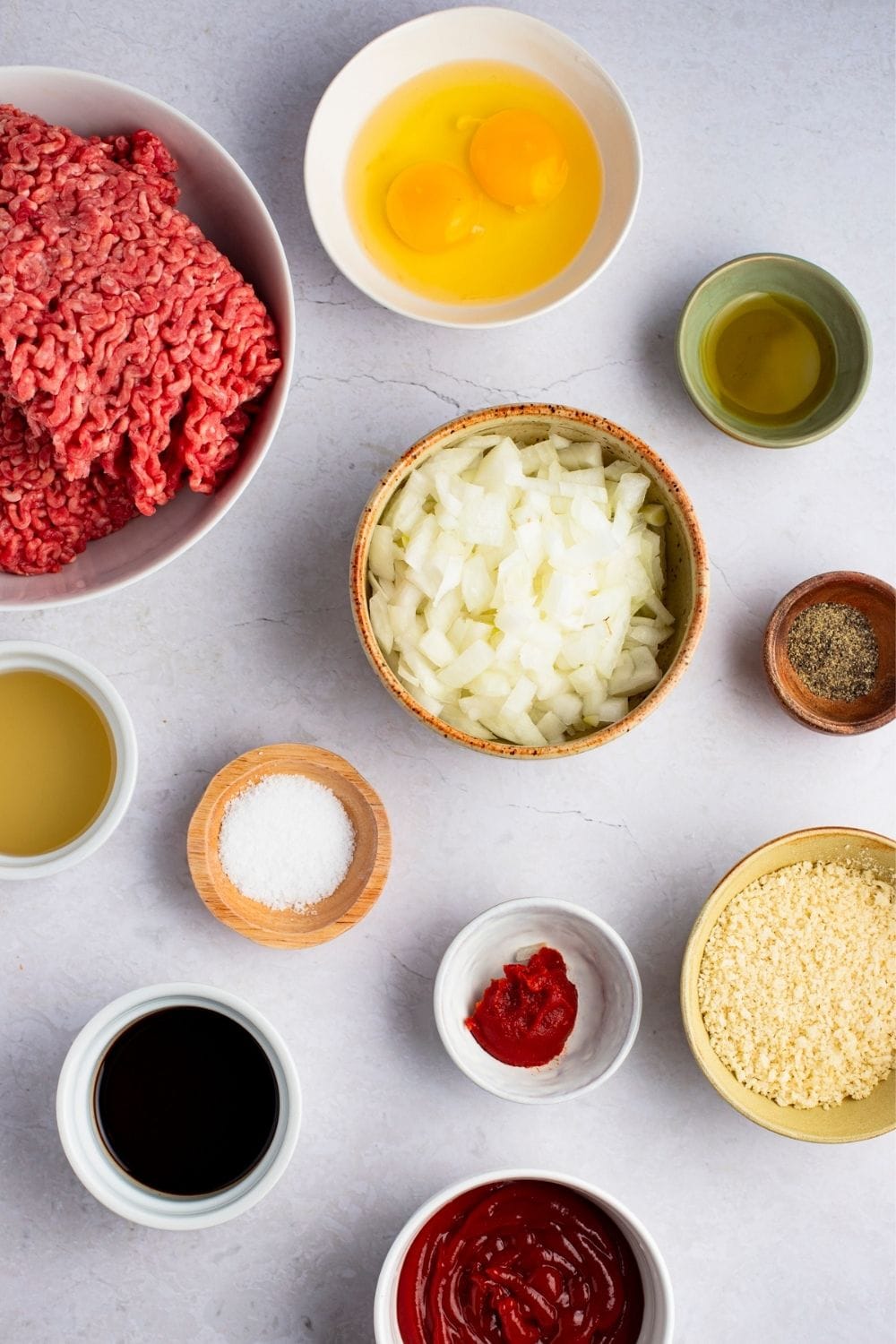
Should Meatloaf be Baked Covered or Uncovered?
It’s a little confusing because other recipes call for covering the loaf in foil to seal in the moisture.
But I don’t find it necessary. You want to expose the meatloaf to heat so that its exterior will brown and caramelize, while its interior stays nice and moist.
If you notice the meatloaf browning too early, though, you can loosely tent it with foil.
What Makes My Meatloaf Fall Apart?
It’s most likely that you didn’t put enough binding ingredients. Ina Garten’s recipe uses a mix of breadcrumbs and eggs to help the meatloaf hold its shape.
Be sure to stick to the measurements specified in the recipe card.
It’s also possible that you over-baked the meatloaf. Don’t bake it longer than 1 hour 15 minutes.
Lastly, you’ve maybe sliced it way too soon. You have to let the meatloaf rest and cool for at least 10 minutes.
But here’s some good news: even if your meatloaf falls apart into crumbles, it’ll still be delicious.
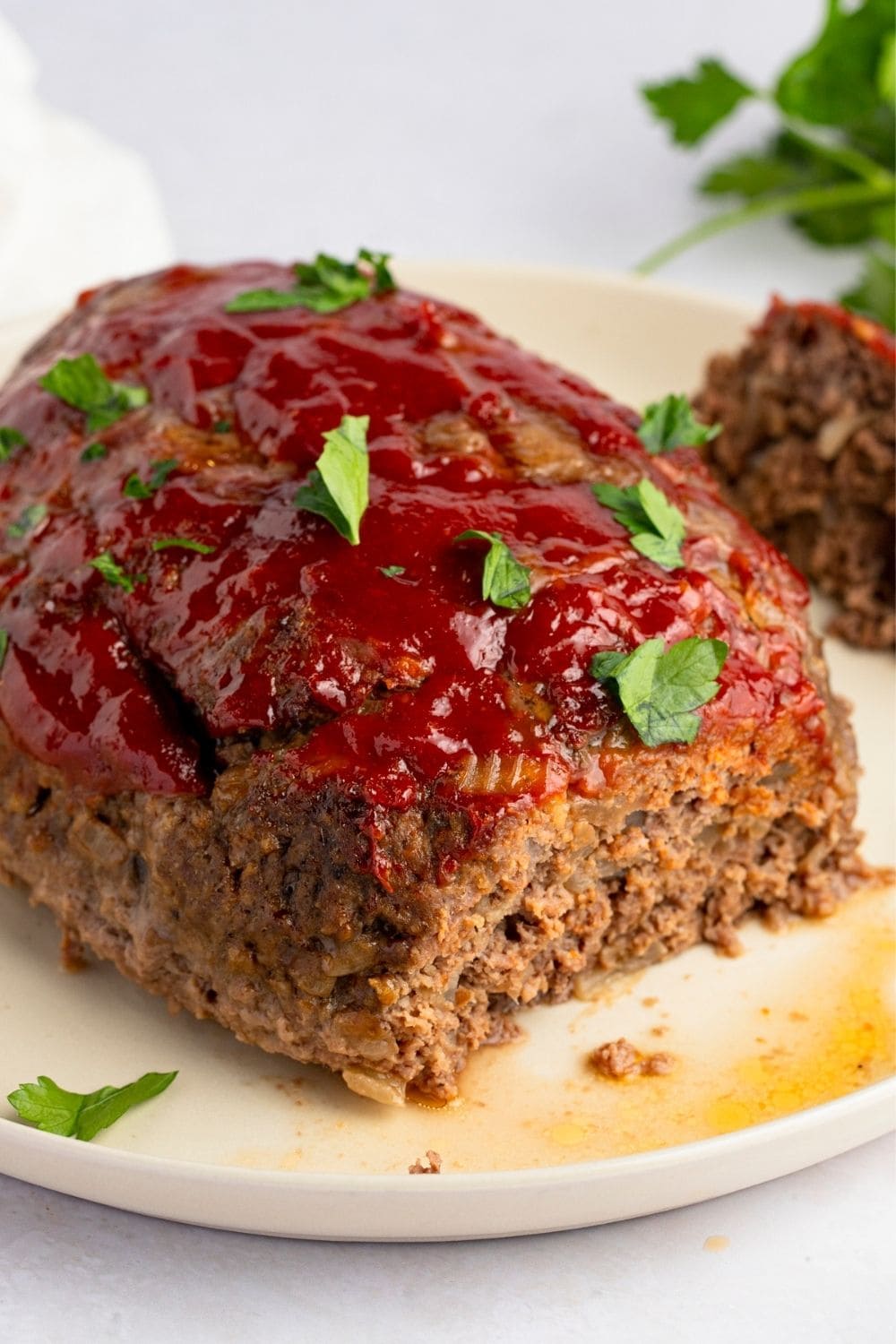
Tips for Making The Best Meatloaf
- No one wants a dry meatloaf, so be sure to use 80 to 85% lean ground beef. It’s the best ratio of fat to meat that will yield a perfectly moist and juicy meatloaf.
Any leaner than that and your meatloaf will be dry. Any fattier, and you’ll get a greasy mess.
- Place a pan of hot water at the bottom rack of the oven to prevent the meatloaf from cracking.
- Ina Garten uses ground chuck for her meatloaf, but you can also experiment with other meats. Try mixing ground beef and ground pork, or even ground sausage for flavor variation.
- Do not over-mix the meat mixture. I can’t state this enough. Over-mixing is the number one culprit of tough and dry meatloaf.
Just mix the ingredients ever so lightly with a fork, and stop until they’re combined.
- Don’t pack down the mixture when forming it into a loaf as well. A loose loaf yields a moist meatloaf.
- Don’t over-cook the meatloaf, and don’t set the temperature too high. Slow and low is the way to go, which is why I’m sometimes surprised at how some recipes call for baking the loaf at 425 degrees Fahrenheit.
Stick to 325 degrees, and you’ll be rewarded.
- Add vegetables for more flavor and texture. Chopped carrots, celery, and bell peppers make fantastic additions. You’ll be surprised at how significant an enhancement they make.
- Some recipes call for placing the meat mixture in a loaf pan, but based on my experience, I don’t recommend it.
While it helps the meatloaf hold its shape, it also yields a tough and greasy meatloaf.
Since the juices have nowhere to go, it causes the meat mixture to steam in them.
Whereas, if you shape the loaf yourself and bake it on a sheet pan, the meatloaf will cook perfectly. It’ll brown nicely on all sides, too.
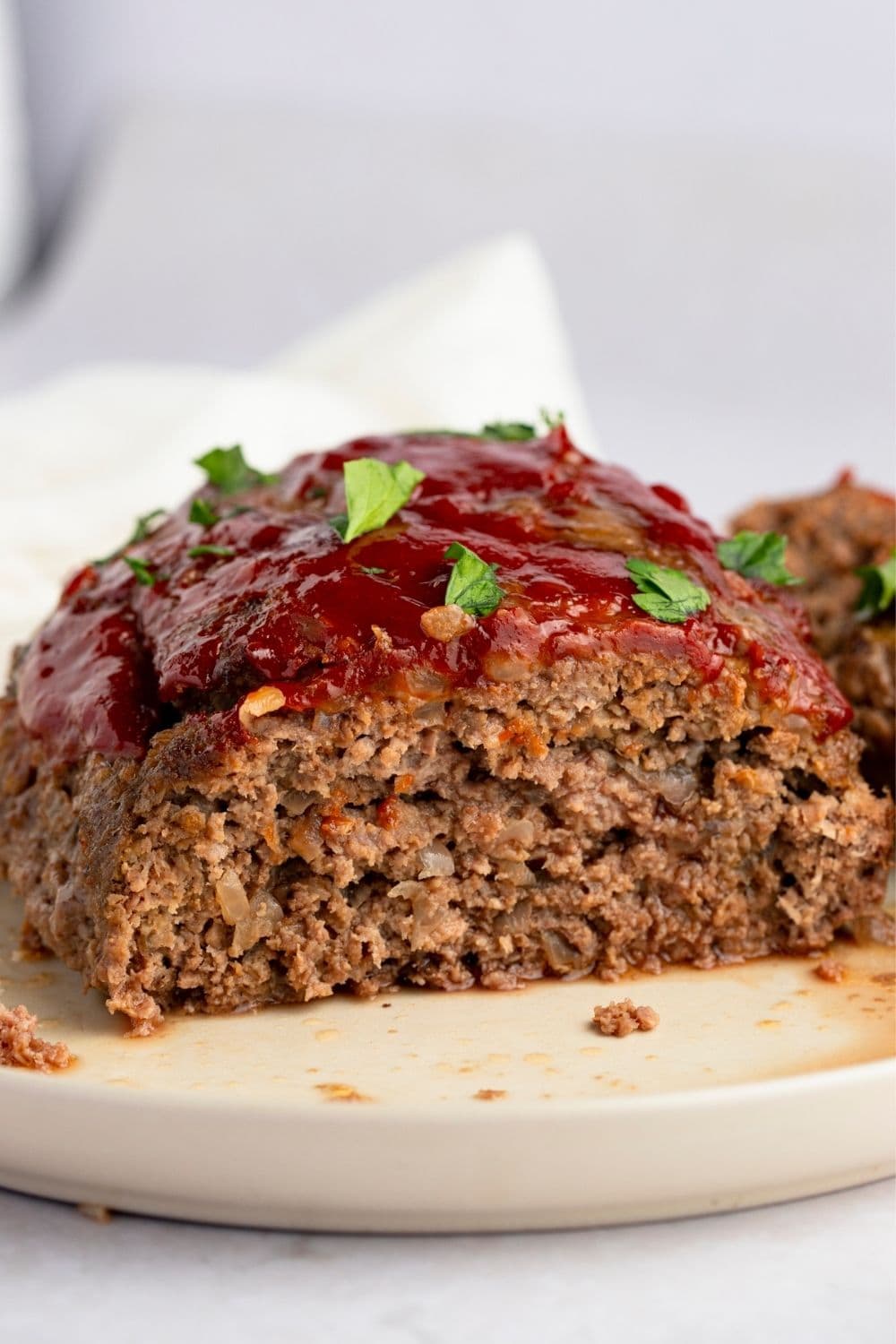
- Let the meatloaf rest for at least 10 minutes to allow the juices to redistribute and the loaf to hold its shape.
- The length of baking depends on the size of your meatloaf. Here are some estimates, for your reference:
- 1 pound: 45 minutes
- 2 pounds: 1 hour
- 3 pounds: 1 hour 20 minutes
- The best way to check for doneness, though, is to stick a meat thermometer into the center of the loaf. You’ll know it’s done if its internal temperature is 160 degrees Fahrenheit.
- Chop the onion finely so it cooks all the way through.
- Meatloaf freezes well, so feel free to double the recipe and store the rest.
- To freeze cooked meatloaf, let it cool to room temperature. Wrap it in foil and place it in a freezer-safe bag. Freeze meatloaf for up to 3 months.
I prefer storing individual slices over an entire meatloaf. This way, I can easily retrieve a few slices whenever a craving strikes.
How to reheat meatloaf? Top it with ketchup and bake at 350 degrees Fahrenheit for 20 to 30 minutes, or until warmed through.
Or, thaw slices in the fridge overnight and microwave them until warm.
- To freeze uncooked meatloaf, place the meat mixture in a loaf pan lined with plastic wrap. Freeze it for 1-2 hours, or until frozen solid. Remove from the pan and wrap with foil.
Freeze it for up to 3 months.
Defrost it in the fridge overnight and bake as instructed.
More Meatloaf Recipes You’ll Love
- Cracker Barrel Meatloaf
- Cheeseburger Meatloaf
- Lipton Onion Soup Meatloaf
- Trisha Yearwood’s Meatloaf
- Paula Deen’s Meatloaf
